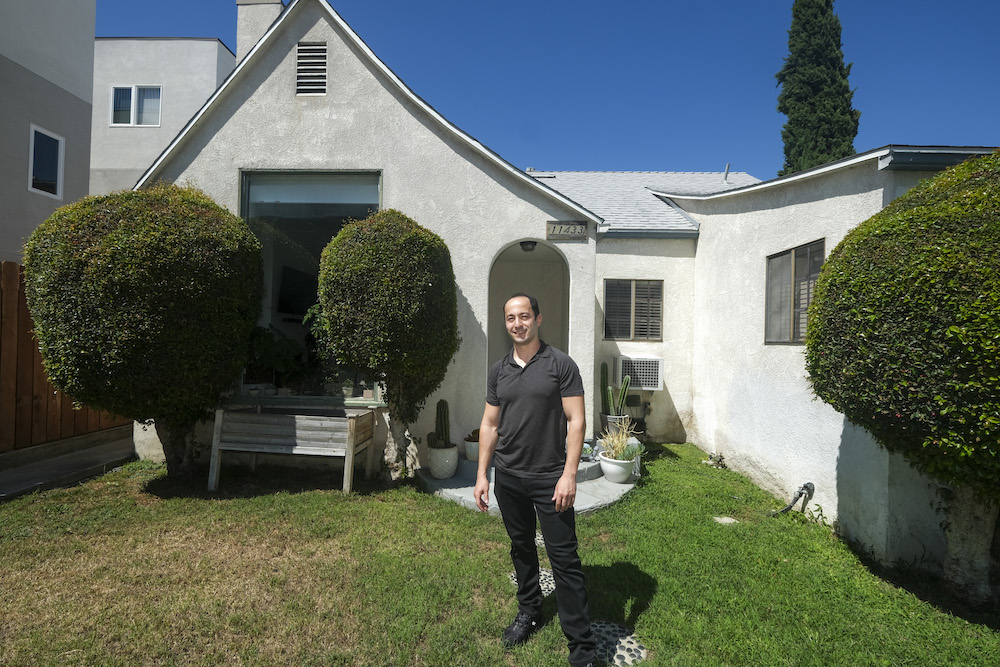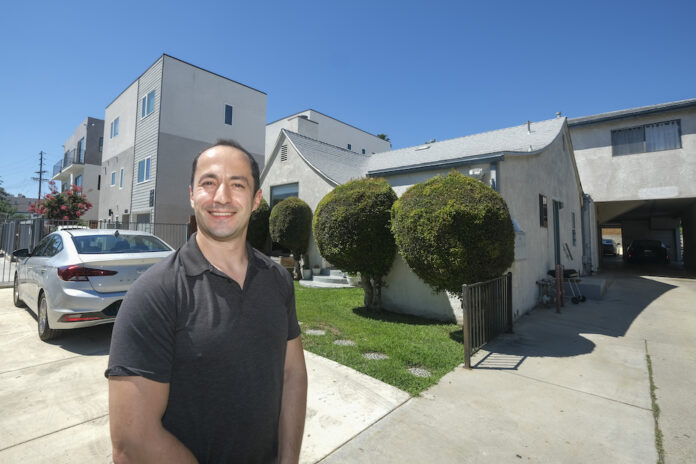Thousands of L.A. apartment owners say they’ve been hurt by the city’s rent freeze and will continue to suffer if it’s extended. For example:
Vlad Polischuk grew up in Ukraine under communism and moved with his family to Los Angeles in pursuit of a prosperous life. Polischuk owns three single-family homes in Palmdale and has nine units across two apartments in North Hollywood.
Born and raised in the valley, Jay Rosenthal has been managing properties since he was 18. He began his career managing properties on behalf of the owner of a commercial development group, and shortly after he started his own company, Southland Income Properties. Rosenthal resides in Woodland Hills.
Similarly, Scott Rosenfeld got into the apartment business fresh out of college. His company is L.A. Properties, which owns about 500 units spread around Los Angeles County – the majority of which he considers “blue-collar units.”
They are a few of the tens of thousands of property owners who are members of the Apartment Association of Greater Los Angeles. Now, the association is fighting back, and has filed a lawsuit against the city of Los Angeles for the financial burden the rent freeze ordinance has caused housing providers.
The rent freeze began on March 30, 2020, but isn’t scheduled to end until Jan. 31. It prohibits landlords from increasing rent on units subject to the Rent Stabilization Ordinance in an attempt to provide renters with additional protections in response to Covid-19 – a period deemed financially stressful.
Ultimately, the rent freeze was established to prevent unnecessary housing displacement and to prevent individuals from falling into homelessness.
According to the association, the lawsuit seeks to nullify the ordinance, claiming it violates both the U.S. and California constitutions because it deprives landlords of due process.
Financial burden
Los Angeles County has undergone severe inflationary pressures in recent years, leaving landlords dependent on rent increases to keep their businesses alive. But with standstill rental prices despite inflation, combined with the city continuing to increase property taxes and contracts for utilities – such as water, power and trash – some housing providers are facing a loss of income.
“Property owners are underwater,” said Daniel Yukelson, executive director of the apartment association. According to Yukelson, the citywide loss of income as a result of the rent freeze equates to well over $2.6 billion.
“The rent freeze has certainly made it less profitable from an owners’ perspective,” Rosenthal said. “That money will never recover.”
Rosenthal said the biggest grievance of the rent freeze that often goes overlooked is that many of these multifamily units have mortgages with adjustable interest rates, which property owners are financially responsible for.
“So when the interest rate goes to 7%, that’s a real pain,” he said. “That’s uncollectable.”
Rosenfeld echoed this, saying, “Landlords are (paying) out of pocket for tenants to live in their buildings … I’m not looking to make more of a profit. I’m just looking to offset the expenses.”
Other investments

Polischuk began investing in Airbnb properties several years ago.
He now has Airbnb locations in Maui and Big Bear Lake, which, he says, he wouldn’t have purchased had the city not introduced the rental freeze.
“The economics of these kinds of laws are very bad,” Polischuk said. “It causes people like myself to take my money and go somewhere else.”
According to association members, one of the biggest issues with the ordinance is the targeted nature of the government authority on a private enterprise, a mandate, they deem, exclusive to the rental market.
“No other type of business or entity – not food suppliers, medical professionals, nor the government itself – have been burdened by what will ultimately be a four-year mandated ‘freeze’ on income from which housing providers will never be able to make up,” Cheryl Turner, president of the apartment association’s board, said in a statement.
“At some point, if the interest rates were to continue (increasing) and freezes and other burdens are placed upon the shoulders of property owners, buildings might go back to the bank, values will diminish, or properties won’t get maintained the way they were once because they won’t have the ability to do it because they’ve gone on to service a debt,” Rosenthal said. “Property owners aren’t the bad guys here.”
According to the association’s members, the biggest goals with the lawsuit are to overturn the rent freeze, to prevent similar legislation from being passed in the future and to allow members to seek damages from the city.
The association has a hearing scheduled for next month. The city has not yet responded to the lawsuit.
Since the rent freeze ordinance began in March 2020, the association has filed multiple other lawsuits against the city, including suits against Measure ULA – a one-time real estate tax on multimillion-dollar real estate transfers – and the residential eviction moratorium, another form of protection the city provided in response to the pandemic forbidding landlords from evicting tenants who are unable to pay rent as a result of Covid-19. Both of these cases are still pending.
